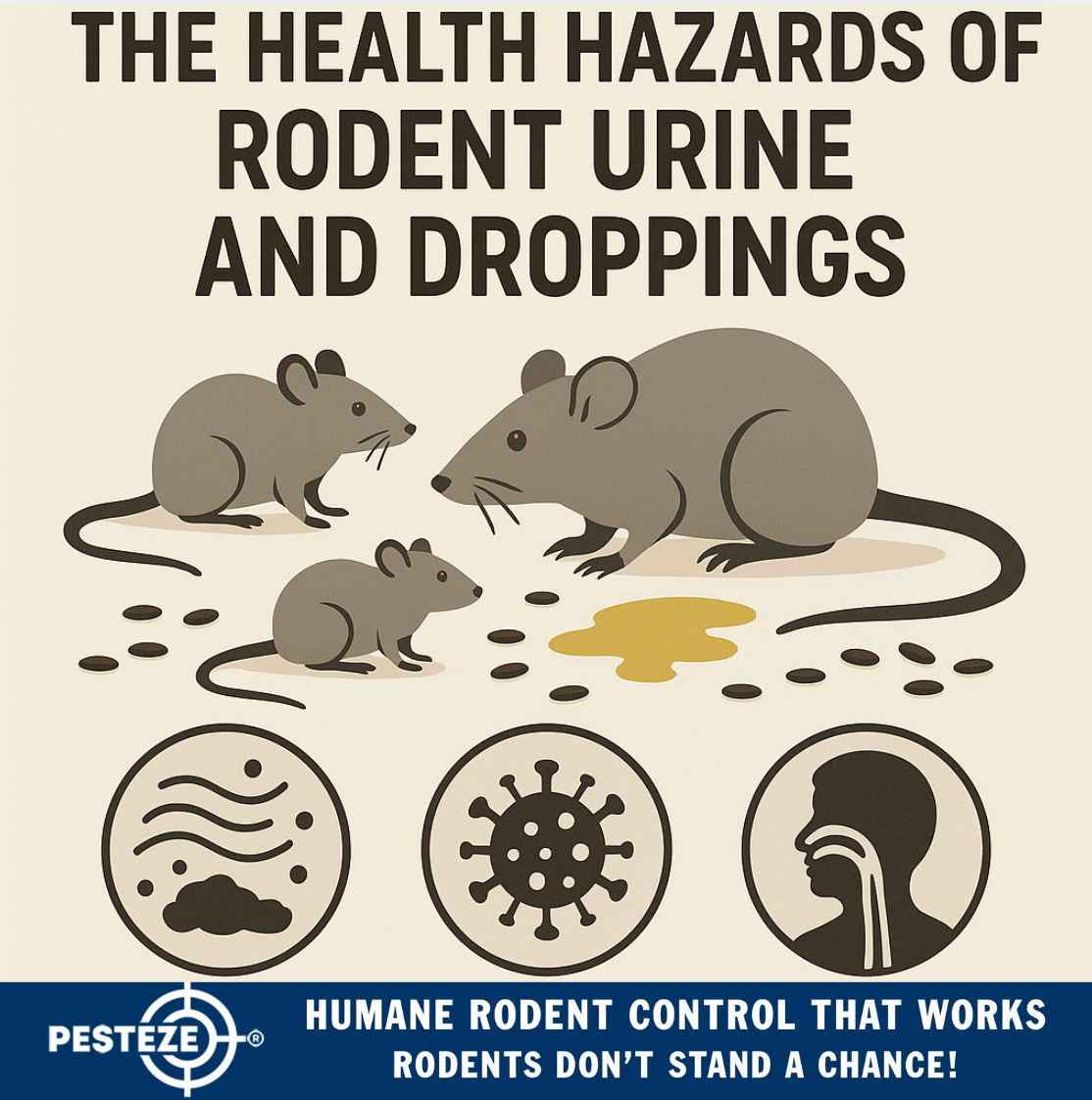THE HEALTH HAZARDS OF RODENT URINE AND DROPPINGS

THE HEALTH HAZARDS OF RODENT URINE AND DROPPINGS
SUMMARY
Rodent urine and droppings pose serious health risks to humans and pets. They can spread harmful bacteria, viruses, and allergens that trigger illness even long after contamination. Learn the dangers, warning signs, and safe cleanup methods to protect your home and health.
FEATURES
-
Airborne Diseases: Hantavirus and leptospirosis spread through dust from droppings.
-
Surface Contamination: Urine and feces can taint food and kitchen surfaces.
-
Allergic Reactions: Rodent waste can cause asthma and respiratory irritation.
-
Cross-Contamination: Pathogens spread through air vents and HVAC systems.
-
Safe Cleanup: Use disinfectants, gloves, and avoid sweeping or vacuuming.
-
Professional Remediation: Hire experts for large or long-term infestations.
DESCRIPTION
Rodent urine and droppings are more than an unpleasant sight—they’re a significant health hazard. When left unchecked, they can spread dangerous diseases and contaminate the air and surfaces within your home or business. Understanding the risks and proper cleanup methods is key to maintaining a safe and healthy environment.
Airborne transmission is one of the most serious concerns. As rodent droppings and urine dry, they release microscopic particles that can carry pathogens like Hantavirus, Leptospira, and Salmonella. Inhaling these particles can cause severe respiratory illnesses, including Hantavirus Pulmonary Syndrome, which can be fatal if untreated.
Surface contamination is another issue. Rodent waste can taint food storage areas, kitchen counters, and utensils, spreading bacteria that cause foodborne illnesses. Even brief contact with contaminated surfaces can pose a risk, especially for children, the elderly, and those with weakened immune systems.
Allergies and asthma are also linked to rodent exposure. Proteins in rodent urine and droppings can trigger allergic reactions, chronic coughing, and breathing difficulties. These allergens can persist even after visible waste is removed if not properly disinfected.
Rodent contamination can spread throughout your property via HVAC systems and air ducts. This cross-contamination allows pathogens to circulate into different rooms, increasing health risks for occupants.
For safe cleanup, never sweep or vacuum droppings directly—this spreads contaminated dust into the air. Instead, wear gloves, use a disinfectant spray, and wipe affected areas with paper towels. Dispose of waste in sealed plastic bags and wash hands thoroughly afterward.
If you’re dealing with a large or long-term infestation, professional remediation is essential. Certified pest control and cleaning experts have the proper tools and safety equipment to eliminate waste and sanitize affected areas without risking exposure.
By understanding the health hazards of rodent urine and droppings and taking proper precautions, you can protect yourself, your family, and your home from serious illness and contamination.
- Saharsh Bansal


Comments 0